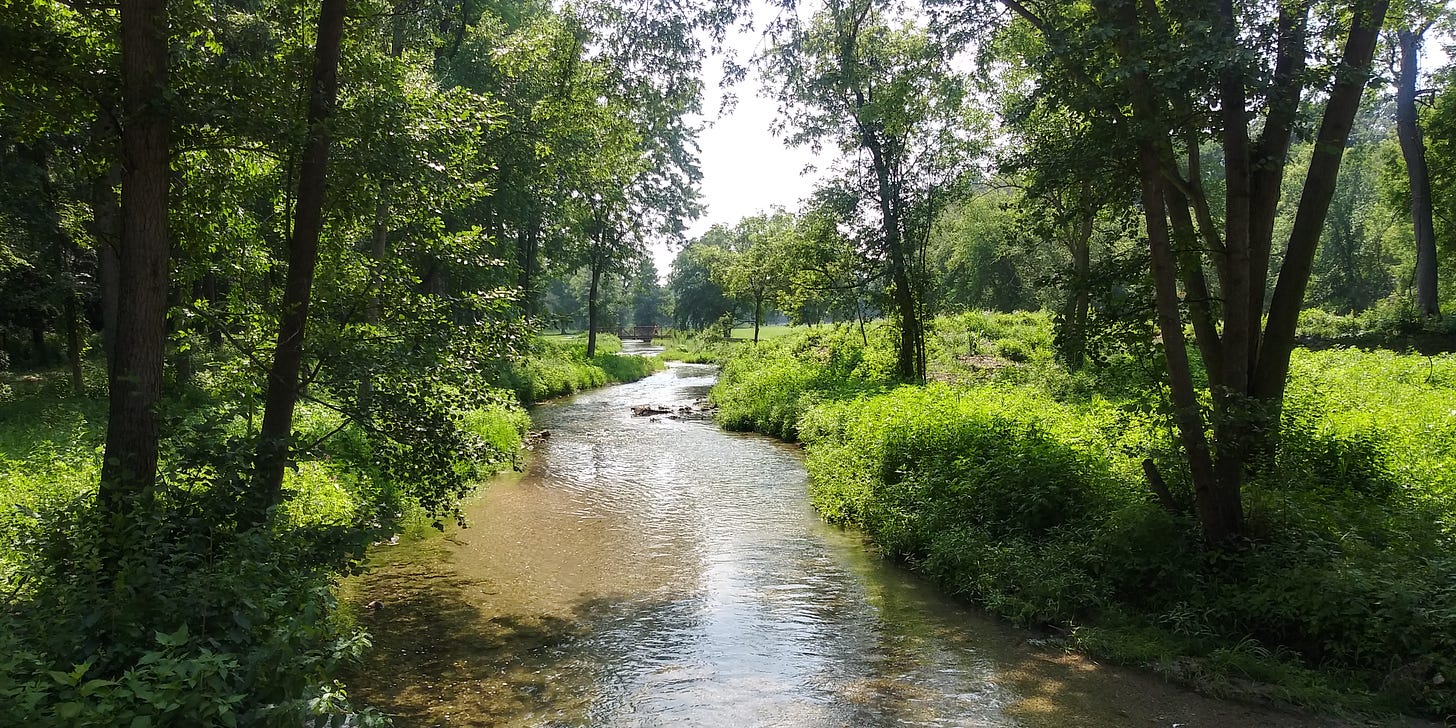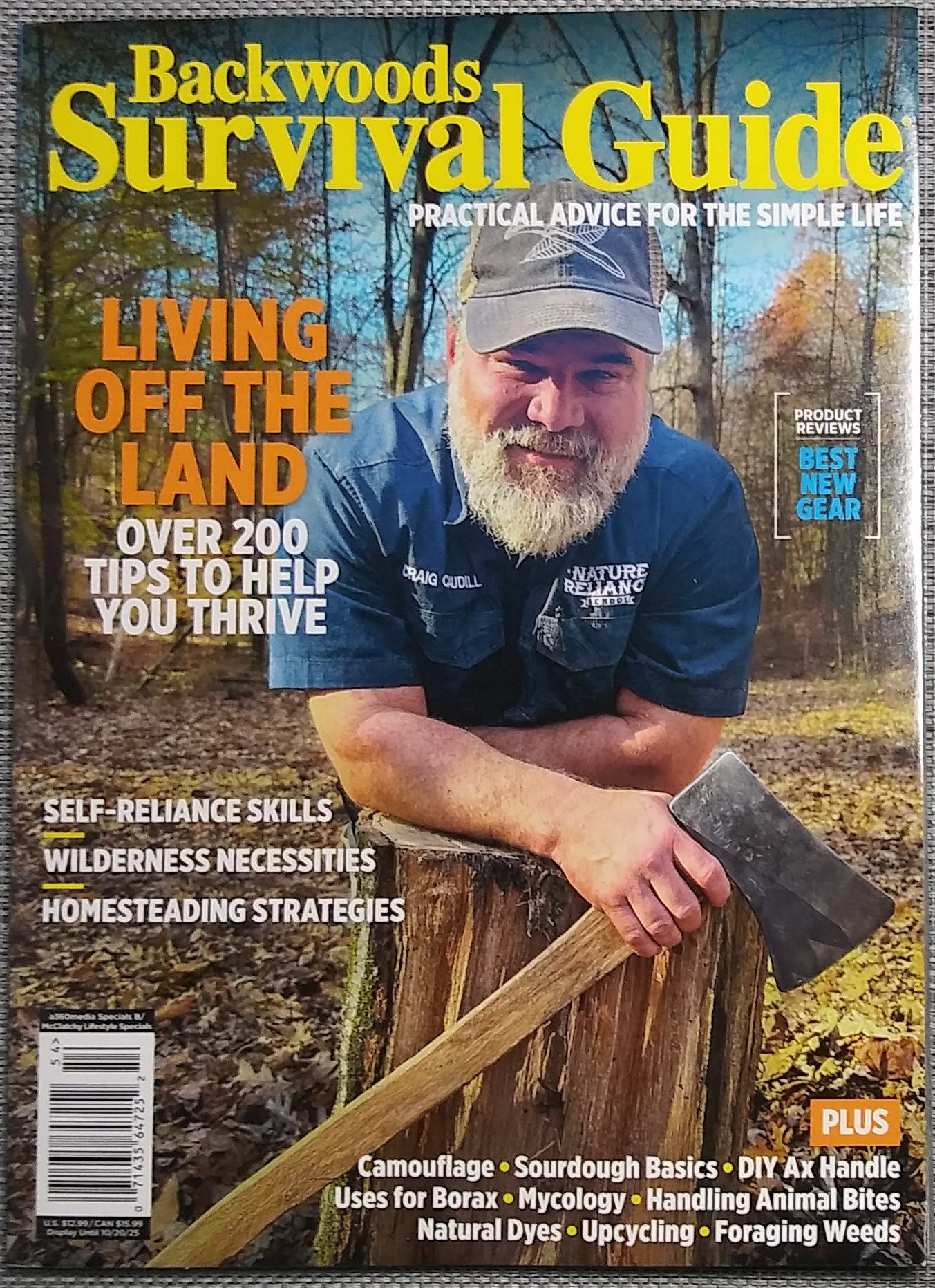Hey everyone, thanks for checking out the newsletter this week. The weather locally finally started to get decent again late last week. We’d had several days of brutal heat and humidity, with heat indexes of around 105F. When it finally broke, the daytime temps were only in the low 70s and down into the upper 50s at night. Just absolutely glorious, as far as I’m concerned.
It’ll get back up into the 80s later this week, but that’s still not too bad, I suppose. I swear, the older I get, the less tolerant I become of hot weather. I can’t wait for fall to swing around once again. While I can physically handle the heat, it makes me far less pleasant to be around.
* * *
Daisy Luther shared an incredible review of my latest book, Countdown to Preparedness (2nd edition) on her site a few days ago. Among other things, she said, "If you get one general preparedness book this year, this needs to be the one."
* * *
While having emergency gear with you and being proficient with its use is absolutely important, even more critical is understanding that the best scenario is one in which that gear goes unused. In other words, if the conditions are sketchy, don’t push your luck simply because you think you have what it takes to survive.
* * *
When the topic of EMP and Faraday cages comes up on prepper social media, I can always count on someone chiming in about how there is no point in storing or protecting a cell phone or similar device. If an EMP were to hit, the cell towers and such will obviously be out of commission.
Here’s the thing, though. For most people interested in this subject, it has nothing to do with wanting a working phone to communicate with others. Cell phones and tablets can store a ton of data that could prove useful during the rebuilding phase after some sort of major EMP strike. Everything from textbooks to blueprints to owner’s manuals could be stored electronically. One only needs a way to provide power, which could be easily solved.
If you’re going to the trouble of fashioning some sort of Faraday cage, then you may as well use it in a logical manner.
* * *
Here are a few of my latest essays that have run on the GAT Daily website. All are free to read.
Handling the Mob – Dealing with Potentially Violent Crowds
Points of Egress – Know Where You’re Going to Go
Can I Get a Lift? Rideshare Safety Tips
* * *
Our hike this week was a visit to Hillmoor Park in Lake Geneva, Wisconsin. This is an old golf course that’s been repurposed as a park It only has a few trails so far. All told, we did nearly three miles wandering around there.
Survival Tip – Crisis Uses for Social Media
By definition, you can’t make an informed decision without information. And accurate information is vital when it comes to disaster mitigation and response. Acting blindly could put you and your family at risk. This is a rare instance where social media can actually be helpful.
For the purposes of our discussion, I’m focusing on Facebook, but there are other apps/sites that could serve similar purposes.
Before we go any further, let’s get this out of the way. Yes, there are absolutely going to be situations where you’ll be unable to access social media. But not every crisis or disaster is going to be a grid down scenario. Make use of the tools available to you at the time. If you’re able to get on Facebook, here are some ways it could be useful to you.
Obtain Local Information
Social media can be a great way to get boots on the ground intelligence. In many areas, people have established what are colloquially called scanner pages. Here’s how they work. One or more people spend time every day listening to radio traffic via a scanner. They post to the page dispatch calls for police, fire, and rescue. This information could help you put together a picture of what’s actually happening around you. Where this really shines is when people will comment on the posted calls, sharing first person accounts of what’s happening. For example, if there’s a bad storm front moving through the area, people might post about the intensity of the rainfall/snowfall, the road conditions, and such. You can use this information to determine how you want to proceed in your own situation.
Seek or Render Assistance
In the wake of a disaster, many people need help with everything from rescues to supply drops. Social media can be one way for these people to communicate their needs and arrange for assistance. By the same token, if you’re in a good position to do so, you can monitor social media and watch for people you can help. Perhaps someone in the neighborhood is in dire need of diapers for their baby, and you happen to have half a box left from when your grandchild spent the weekend. If the shoe is on the other foot and you’re the one in need, you can use social media to reach out and hopefully connect with a person or agency that can help.
Communicate with Family and Friends
Quite often, cell phone traffic overwhelms cell service providers after a disaster hits. That stands to reason, given how many people are trying to get through to others. Calls get dropped or don’t go through at all. Texting is often better, but even that isn’t guaranteed. If you’re able to get online, you can use social media to connect with family or friends. This could be through posts, such as just a blanket, “We’re okay.” Alternately, you could use the messaging feature and reach out to people individually.
Social media isn’t as “social” as it could be, but it can still be a valuable tool in some situations.
Backwoods Survival Guide Magazine
For those new to my little corner of the Internet, I am the Editor in Chief for Backwoods Survival Guide magazine. Here is the cover for the current issue available in stores right now.
You can find Backwoods Survival Guide just about anywhere magazines are sold, including:
Walmart
Publix
Walgreens
Rite Aid
CVS
Tractor Supply
Fleet Farm
Barnes & Noble
Subscriptions are available here.
Questions, Comments, Complaints, Concerns?
I am always just an email away - jim@survivalweekly.com.



Great insight on the uses for social media! Far from a crisis, but I was leaving work in Hales Corners to head home, and popped onto facebook briefly before I pulled out. I discovered that an accident on the freeway between there and home had shut it down. I popped off a message to my kids letting them know I wasn't involved, and used an alternate route home.
Social media does have its uses, as long as we avoid the landmines 😉